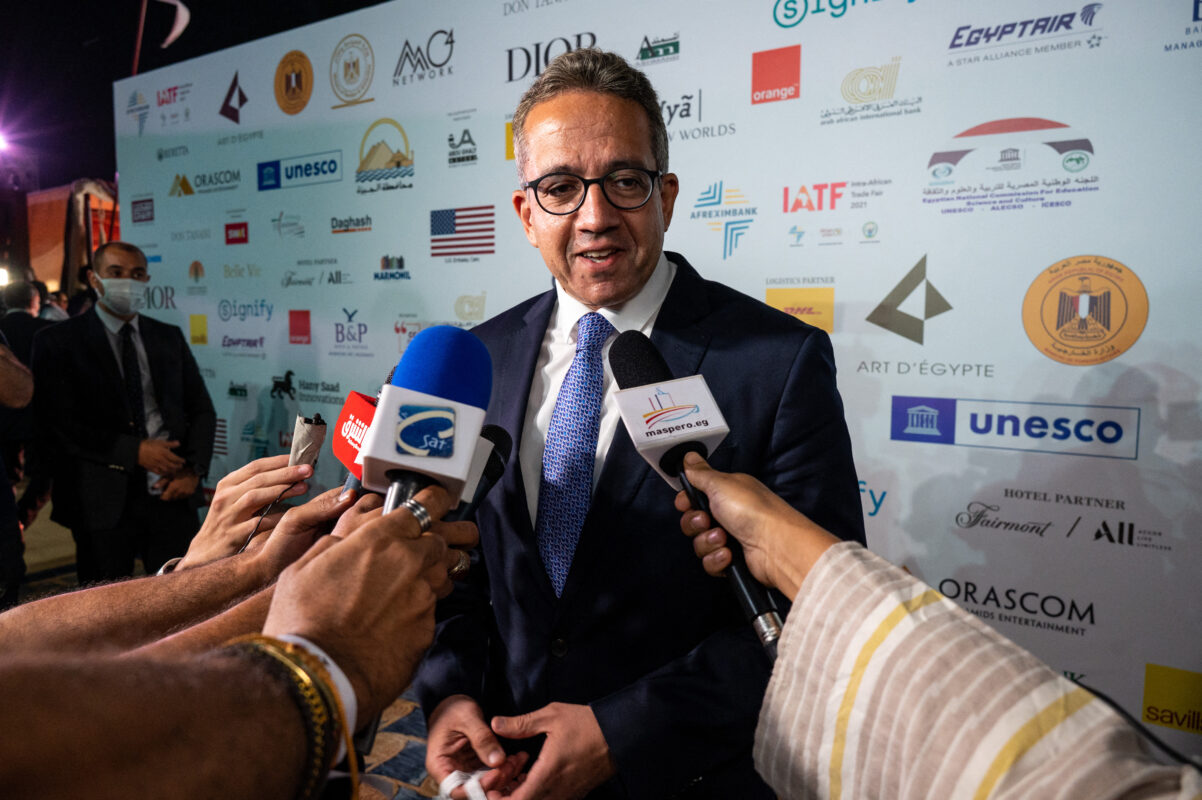Khaled El-Enany emerges as contender to succeed Audrey Azoulay at UNESCO helm

The support of France for Egypt’s Khaled El-Enany as the next Director-General of UNESCO may shape the outcome of the impending election, as Audrey Azoulay prepares to step down at the conclusion of her second term.
Audrey Azoulay’s Transformative Leadership at UNESCO
Since her election in November 2017, Audrey Azoulay has been credited with revitalizing UNESCO’s standing within the multilateral framework.
A graduate of France’s École nationale d’administration and a former Minister of Culture under President François Hollande, Azoulay’s tenure was marked by a progressive agenda and a drive to reinforce UNESCO’s role as the custodian of global heritage.
Beyond heritage preservation, she championed educational initiatives and digital transformation within the organization.
One of the highlights of Azoulay’s leadership was the 2023 return of the United States to UNESCO, ending a prolonged period of disengagement.
This move bolstered funding and support for the organization’s key initiatives.
Azoulay also prioritized climate action, advocating for the protection of cultural and natural ecosystems in response to mounting environmental crises.
Khaled El-Enany: A Candidate Bridging Cultures
As Egypt’s former Minister of Tourism and Antiquities, Khaled El-Enany has carved a reputation for elevating his country’s cultural heritage on the global stage.
His tenure saw the opening of the Grand Egyptian Museum and numerous high-profile archaeological restoration projects, in addition to forging partnerships with leading international institutions.
El-Enany’s candidacy has secured backing from the African Union and the League of Arab States, underscoring a collective aspiration for a more inclusive UNESCO leadership.
Bolstered by France’s endorsement, his nomination reflects global recognition of his expertise and his commitment to promoting peace, tolerance, and intercultural dialogue.
UNESCO’s Future Challenges
If elected, El-Enany will inherit the legacy of Azoulay’s dynamic leadership.
He will be tasked with advancing educational access, safeguarding global heritage, and fostering scientific cooperation, all while navigating the complexities of a diverse and interconnected world.
His recent engagement with the Organisation Internationale de la Francophonie highlights his dedication to linguistic and cultural diversity, values central to UNESCO’s mission.
France’s backing of El-Enany signifies not just strategic continuity, but also a desire to deepen North-South partnerships.
As Audrey Azoulay departs, she leaves behind an energized institution and a challenging mission for her successor—one that demands both innovation and unwavering dedication.
About The Author
dailymailafric
I am an avid African news observer, and an active member of Daily Mail Africa.
I’m Passionate about staying informed on diverse topics across the continent,
I actively contribute to publishing on political, economic and cultural developments in Africa.



